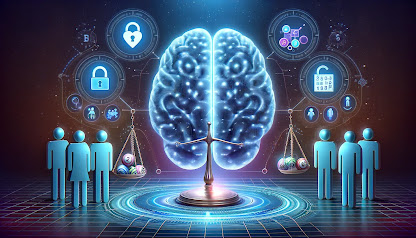In the realm of gaming, the integration of Artificial Intelligence (AI)
has been a game-changer, particularly in enhancing user experiences
and opening new avenues for game developers to explore. AI game
development companies are at the forefront of this innovation,
leveraging AI to create games that are more engaging, challenging,
and personalized. Bingo game development services, in particular,
have seen significant benefits from AI integration, from automating
number calling to analyzing player behavior for a more tailored
gaming experience. However, as with any technological
advancement, the use of AI in game development, especially
in games of chance like Bingo, brings with it a set of ethical
considerations that developers and stakeholders must navigate.
Transparency and Fairness
One of the primary ethical concerns revolves around transparency
and fairness. Players engaging in AI-enhanced Bingo games
must be assured that the AI algorithms governing the game are
fair and unbiased. This transparency is crucial in maintaining
trust between the service providers and the players. It raises
questions about the openness of AI game development companies
regarding the inner workings of their algorithms and the extent
to which players are informed about AI's role in the game outcome.
Privacy and Data Protection
The use of AI in Bingo games typically involves the collection
and analysis of vast amounts of player data to enhance game
personalization and engagement. While this data-driven
approach benefits players through a more customized gaming
experience, it also poses significant privacy risks. Ethical
Bingo game development services must ensure that player
data is collected, stored, and used in compliance with privacy
laws and regulations. Moreover, players should be informed
about what data is being collected and how it is being used, with
clear options to opt-out if desired.
Addiction and Responsible Gaming
AI's ability to create highly engaging and personalized gaming
experiences can also lead to increased risks of gaming addiction.
Bingo, being a game of chance, already carries a risk of addiction,
and the use of AI to optimize game engagement could potentially
exacerbate this issue. Ethical considerations must include the
development of responsible gaming features, such as setting
limits on playtime or spending, and the inclusion of algorithms
designed to detect and mitigate addictive behavior patterns.
AI Bias and Discrimination
Another ethical concern is the potential for AI algorithms to perpetuate
bias and discrimination. If an AI game development company does
not carefully design and test its algorithms, there's a risk that the AI
could inadvertently favor certain player demographics over others.
This could manifest in the game's difficulty level, the rewards system,
or even in targeted marketing practices. Ensuring that AI systems
are free from bias and treat all players equally is a significant ethical
responsibility for companies providing Bingo game development
services.
Conclusion
As AI continues to redefine the landscape of game development,
particularly in the Bingo industry, the ethical considerations
surrounding its use become increasingly important. AI game
development companies and Bingo game development services
must strive to balance innovation with ethical responsibility,
ensuring that games are not only engaging and successful but
also fair, transparent, and respectful of players' rights and
well-being. By addressing these ethical concerns head-on,
developers can foster a gaming environment that respects and
protects its players, paving the way for a future where AI can
be harnessed responsibly and beneficially in the world of gaming.
Read more blogs about the gaming industry:
Online Bingo Tournaments: Tips for Competitive Play
Dynamic Character Poses in 3D Modelling: Tips and Tricks
Blending Art and Technology: The Future of Character Design in 3D Modeling

.jpg)


No comments:
Post a Comment